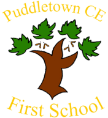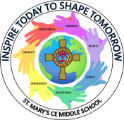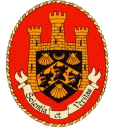
Spanish

Introduction
Through the Spanish A Level course, you will study literature, film and traditions and will learn the core skills of translation and interpretation. Spanish is one of the most widely spoken languages. It is estimated that Spanish is the mother tongue of more than 400 million people around the world, which is equivalent to approximately six percent of the world’s population. For this reason, if we are based on the number of native speakers, Spanish is officially the second most widely spoken language, ranking ahead of English.
Topics covered
Topics covered across the two years:
3.1.1 Aspects of Hispanic society
Students may study all sub-themes in relation to any Spanish-speaking country or countries.
- Modern and traditional values (Los valores tradicionales y modernos)
- Los cambios en la familia
- Actitudes hacia el matrimonio/el divorcio
- La influencia de la Iglesia Católica
- Cyberspace (El ciberespacio)
- La influencia de internet
- Las redes sociales: beneficios y peligros
- Los móviles inteligentes en nuestra sociedad
- Equal rights (La igualdad de los sexos)
- La mujer en el mercado laboral
- El machismo y el feminismo
- Los derechos de los gays y las personas transgénero
3.1.2 Multiculturalism in Hispanic society
Students may study all sub-themes in relation to any Spanish-speaking country or countries.
- Immigration (La inmigración)
- Los beneficios y los aspectos negativos
- La inmigración en el mundo hispánico
- Los indocumentados - problemas
- Racism (El racismo)
- Las actitudes racistas y xenófobas
- Las medidas contra el racismo
- La legislación anti-racista
- Integration (La convivencia)
- La convivencia de culturas
- La educación
- Las religiones
3.2.1 Artistic culture in the Hispanic world
Students must study the sub-theme Spanish regional identity in relation to Spain. Students may study the remaining sub-themes in relation to any Spanish-speaking country or countries.
- Modern day idols (La influencia de los ídolos)
- Cantantes y músicos
- Estrellas de televisión y cine
- Modelos
- Spanish regional identity (La identidad regional en España)
- Tradiciones y costumbres
- La gastronomía
- Las lenguas
- Cultural heritage (El patrimonio cultural)
- Sitios turísticos y civilizaciones prehispánicas: Machu Picchu, la Alhambra, etc
- Arte y arquitectura
- El patrimonio musical y su diversidad
3.2.2 Aspects of political life in the Hispanic world
Students must study Monarchies and dictatorships in relation to any relevant Spanish-speaking country or countries. Students may study the remaining sub-themes in relation to any Spanish-speaking country or countries.
- Today's youth, tomorrow's citizens (Jóvenes de hoy, ciudadanos del mañana)
- Los jóvenes y su actitud hacia la política : activismo o apatía
- El paro entre los jóvenes
- Su sociedad ideal
- Monarchies and dictatorships (Monarquías y dictaduras)
- La dictadura de Franco
- La evolución de la monarquía en España
- Dictadores latinoamericanos
- Popular movements (Movimientos populares)
- La efectividad de las manifestaciones y las huelgas
- El poder de los sindicatos
- Ejemplos de protestas sociales (eg El 15-M, las Madres de la Plaza de Mayo, …)
Students will also study two Spanish works – a book and a film:
La Casa de Bernada Alba and El laberinto de fauno.
Assessment
Three papers:
• Listening, reading and translation
• Written response to works (book and film) and translation
• Speaking
How the course differs from GCSE
In terms of content, the emphasis shifts from students’ needs as a visitor to a Spanish speaking country to look at contemporary issues from a Spanish perspective. As regards the actual exam, there are two important differences:
• The exams and 4 skills are spread over 3 papers, rather than 4.
• The culture of Spain is integral to the course
Skills acquired
Building on the language acquired at GCSE, students learn to express themselves with increasing accuracy and sophistication, both orally and in writing, on a wide range of issues of contemporary interest. At the same time, they learn to tackle authentic written and spoken texts of an increasingly complex nature. In doing so, they gain an insight into the culture and values of another society.
Where the course leads
Spanish can be studied in combination with any other course in higher education. Many courses, including those in the sciences, will offer students with good language skills the chance to take part of their degree course abroad. Graduates in modern languages are in short supply and employers are increasingly keen to recruit people with language skills.
There are many good reasons to study Spanish, and these include:
- More than 23 million people around the world were learning Spanish in 2023.
- Spanish is the third most spoken language in the world and the second most used language in social media.
- Spanish is spoken in 23 countries as a first language.
- Knowledge of a foreign language is highly valued by Universities and employers.
Special entry requirements
Students will need at least grade 6 in GCSE Spanish.
They should have an interest in the issues of the day and in the culture of Spanish-speaking countries, along with an enthusiasm for discussing these in Spanish. If possible, they should spend at least one reasonable period in Spain during the course.













